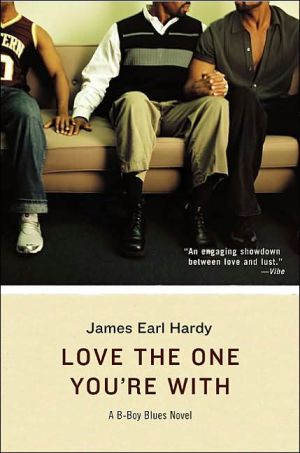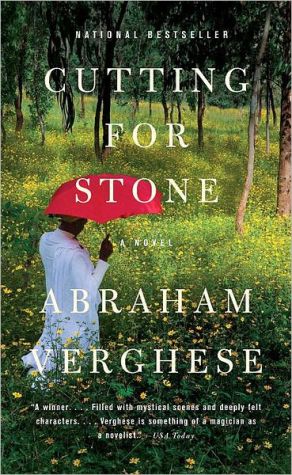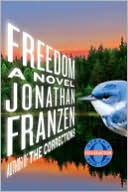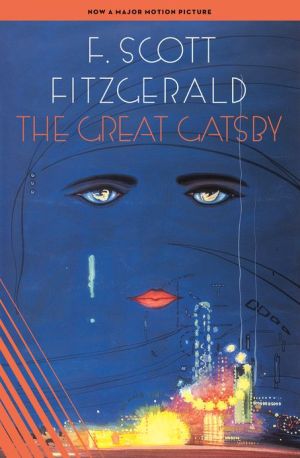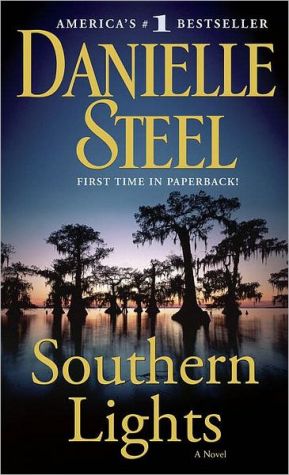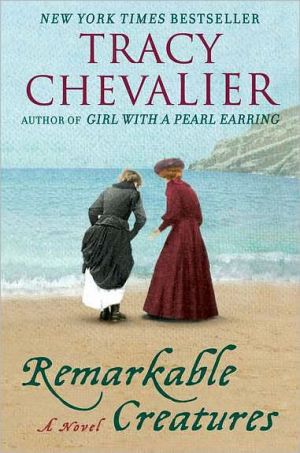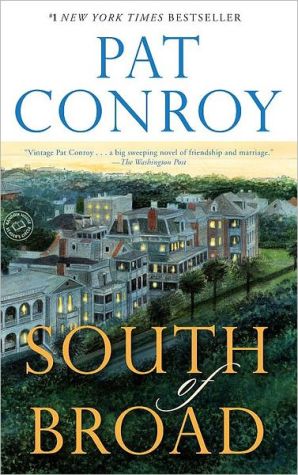Love the One You're With
Do men and monogamy mix? It's not a question Mitchell "Little Bit" Crawford gave much thought to until his beaufriend of almost two years, Raheim "Pooquie" Rivers, an All-American jeans model, heads to Hollywood to make his first feature film. As Mitchell soon discovers, the temptation to cheat is very real . . . and it seems to be everywhere. An ex even pops up hoping to pick up where they left — and got — off. While intrigued, Mitchell chalks all the attention up to "the married man"...
Search in google:
Do men and monogamy mix? It's not a question Mitchell "Little Bit" Crawford gave much thought to until his beaufriend of almost two years, Raheim "Pooquie" Rivers, an All-American jeans model, heads to Hollywood to make his first feature film. As Mitchell soon discovers, the temptation to cheat is very real . . . and it seems to be everywhere. An ex even pops up hoping to pick up where they left — and got — off. While intrigued, Mitchell chalks all the attention up to "the married man" syndrome: one is much more desirable when he's attached to someone else. But as he continues to run into bisexual musician Montgomery "Montee" Simms, the look-but-don't-touch rule is put to the test. As he and Montee get closer, Mitchell's idealistic beliefs about commitment are challenged. Will he love the one he's with because he can't be with the one he loves?Publishers WeeklyHardy continues his noteworthy B-Boy Blues series with this enjoyable if cursory fourth entry, again focusing on the resilient bonds of friendships, the durability of long-standing unions, and the theory and practice of monogamy. Raheim "Pooquie" Rivers has said good-bye for now to his long-time "beaufriend," Mitchell "Little Bit" Crawford, to chase stardom in Hollywood with the expectation that when he returns, his relationship will still be intact. But between sexy, spicy phone calls from Raheim, Mitchell finds himself reveling in the attentions of a variety of other men, like police detective Rippington, whom he meets in a restaurant, and Skye, a frisky teenaged supermarket cashier. Mitchell tries to resist, but falls hard for hot-bodied jazz singer (and UPS man) Montgomery "Montee" Simms. Though Montee freely admits to having bisexual tendencies, Mitchell's crush persists and a fevered union ensues, with no regrets on either side. The light story line is generously studded with slangy vernacular and a host of barbed, campy one-liners, especially during the warm and wicked gay-friends-as-surrogate-family gatherings. A well-documented "soundtrack" (Hardy knows his music) and scenes with Pooquie's young son lend a soft glow to the story. But the playful plot is too often burdened with dogmatic points Hardy seems determined to drill into the heads of his readers. Opinions on subjects ranging from race relations and African-American politics to biased cops and society's view of bisexuality constantly pop up and rob the novel of its intended buoyancy. Comparisons to E. Lynn Harris are inevitable, though more for characterization and slick jacket art than for writing quality and readability. (June) Copyright 2002 Cahners Business Information.
Chapter Four\ \ \ All Night Long\ \ \ "It's the only thing -- besides you -- that could get me to venture into Crooklyn."\ So says Gene about Body & Soul, a dance held every Sunday night in Brooklyn. I hadn't attended it in some time. In fact, I haven't been to a club since Pooquie and I closed a spot called UnderCover up in the Bronx the summer we started seeing each other. (UnderCover is exactly that: a place where all those boyz who are very under cover -- including those homiesexuals in hip-hop -- can go to jam.) Body & Soul lives up to its name: You don't come to dance; you come to Dance. You will sweat the stress, wash the worries, abandon the angst. You won't just work that body -- you'll set your soul free. And, while the slammin' sounds of the disco/dance era take you on that trip to Redemption, you won't find the aloofness, antagonism, and attimatude that pollutes much of the Black gay club scene. No muscle heads or cutie pies whose noses rise three inches in the air if you talk to them -- or whose eyes hold you in contempt if you don't. No crafty cretins whose main purpose is to break up other people's happy homes because theirs is so unhappy. No Geritol Granddads preying on the Embryos (or vice versa). No homiesexuals holding up the walls, standing guard like pit bulls and wearing menacing stares that would make Medusa turn to stone. No Queens without a Country holding court on a stool they rent nightly, being way too catty and way too loud. And, what do you know, not a single "cool" or "hip" Caucasian, or a Snow Cone hangin' on his arm who feelsout of place because there's way too much Negritude in the room (but, like his man, watches us in awe as if they are on safari in Africa).\ Just the brothers coming together to do the Chic cheer: Dance, Dance, Dance.\ For Gene, it just isn't about the Dance. The party reminds him of the very festive and fierce Paradise Garage, the dance-club landmark that preceded Body & Soul, the H(e)aven away from home for Black and Latino gay men in the seventies and early eighties. Gene met many of his friends there and, after the club closed its doors, saw many of those friends die -- of AIDS. He'll well up when certain songs are played -- most notably, Patti LaBelle's "Music Is My Way of Life." He's recognized that while they may be gone, the music didn't die inside himself. It's left up to him to celebrate the lives they lived and the life he has. As Patti testifies, "When the music plays, I gotta keep dancin'..." And so he does.\ Before we headed to Brooklyn, though, we made a pit stop that was truly the pits. Gene had comps for Dizzy's, which claims to be "the only club in America where disco isn't dead." I wasn't too thrilled about going; given who was on the flyer (a chiseled white man in white Calvin briefs...how unoriginal), I knew we were not going to see the type of folk or hear the type of "disco" we would hear at Body & Soul.\ And, when we pulled up in front of Dizzy's, the song that greeted us confirmed my suspicions: the Bee Gees' "Night Fever," which the deejay introduced just before the first verse with: "And here are the true innovators of disco." Huh? If there is any "white" act that could be called a disco innovator, it'd have to be K.C. & the Sunshine Band (and they were a mixed-race group). White folks finally decided disco was worthy of being respected when Saturday Night Fever hit, but the Bee Gees' work was truly cheesy and lacked the grit and soul of real disco (listen to the other Fever soundtrack contributors -- Kool & the Gang, Tavares, and the Trammps -- to hear the proof). I've always argued that if disco died, they were to blame: because of their hokey misappropriation it's no wonder that, twenty-five-million-plus albums later, the world overdosed on them and wished the genre itself would go away.\ So, I wanted us to, as Soul II Soul once chanted, "Keep on Movin'."\ "Let's just go to Brooklyn, Gene," I insisted, tugging on his arm as he paid the taxi driver.\ "Chile, we won't stay long." He opened the cab door and stepped out. "Besides, it's always good to see how the other half is not having fun."\ After checking our coats and passing through a makeshift museum that housed a gold record of the Bee Gees', the Golden Globe Paul Jabara won for "Last Dance" (the theme from the not-as-celebrated disco flick Thank God It's Friday), and the velvet ropes used outside Studio 54, we entered the main room -- and were assaulted by the lights. Strobe beams flickered green, red, and yellow in every direction. A giant, silver-studded, spinning disco ball hovered above the center of the dance floor, which itself blinked on and off. All the flashing annoyed the hell out of us but didn't seem to bother the rest of the clientele.\ "This would be a sniffer's paradise for those who love cocaine," Gene observed.\ "You got that right." In fact, you could count the Negroes on two hands -- and you know I counted them (yes, I included Gene and me). Most of the two-hundred-plus white men seemed out of place in that bland and boring white-short-sleeved-T-and-faded-blue-jean ensemble. There were a few preppies (khakis, varsity sweatshirts, and loafers) and a lone punk sporting purple spiked hair, slashed denims, and black Doc Martens. But some did keep in tune with the spirit of the place: several had on platforms and bell-bottoms, there was a Village People incarnation (the Cop, the Construction Worker, the Sailor, and the Indian, who was a very pale face), a Donna Summer dragon queen (he was a beast), and, of course, a half-dozen John Travolta wannabes, dressed in silk shirts and white polyester suits. Unfortunately, everyone (including the few colored folk) were doing that white-boy shuffle: moving and clapping off beat, some so erratically you'd think they were on drugs (they probably were; the only way some folks can listen to disco is if they are fucked up).\ We got our complimentary drinks and stood directly below the deejay booth. We were hoping our distaste for the selections would be felt by her and the music would get better. It didn't. The Bee Gees were followed by Leo Sayer ("You Make Me Feel Like Dancin'"), Leif Garrett ("I Was Made for Dancin'"), Rod Stewart ("Do Ya Think I'm Sexy?"), and, the ultimate horror of horrors, Rick Dees ("Disco Duck"). If this is the music that people define disco by, it's no wonder there were well-publicized and well-attended events where stacks of disco records were demolished and/or torched (hell, I would've volunteered to drive the bulldozer or start the fire). It was odd that we hadn't heard any Black female artists; Diana's "Love Hangover," Thelma's "Don't Leave Me This Way," Gloria's "I Will Survive," and almost anything by Donna are staples at white gay clubs. Whether these ladies were already played or coming up next, we didn't plan on sticking around to find out: as Cher began pleading "Take Me Home," we made our exit.\ The best things in life aren't always free.\ Three dollars is all the folks who put on Body & Soul charge and it's a criminally low sum to pay for the very jood time you know you'll have. Frankie Knuckles, undoubtedly the greatest deejay and mix master ever, was on the turntables this eve, so we knew he'd be crankin' out those classics nonstop (jood thing I wore my dancin' shoes: a pair of black Rockports that are also great for walking). We arrived just as the horn-howling intro to the "let's get this party started right" tune blared: Cheryl Lynn's "Got to Be Real." Frankie continued on a Disco Diva run: Evelyn "Champagne" King ("Shame"), Aimee Stewart ("Knock on Wood"), Anita Ward ("Ring My Bell"), Miss Ross ("The Boss"), Karen Young ("Hot Shot"), Candi Staton ("When You Wake Up Tomorrow"), and Taana Gardner ("Heartbeat"). And, as it always does, Patti's "Music..." caused Gene to go into a trance, his body jerking as if he were having a seizure. By the end of the song I was rocking him like a baby, as he sobbed. But he did a three-sixty on Loleatta Holloway's "Hit & Run" (unlike Loleatta, Gene believes in stickin' but not stayin').\ Then Frankie proved the beat did go on when the eighties rolled in, serving us treats like Atlantic Starr's "Circles," Two Tons O' Fun's "Just Us," Womack & Womack's "Baby I'm Scared of You," Denroy Morgan's "I'll Do Anything for You," Teena Marie's "Square Biz," Fonda Rae's "Over Like a Fat Rat," Gwen Guthrie's "Ain't Nothin' Goin' On but the Rent," Imagination's "Just an Illusion," Young & Company's "I Like What You're Doing to Me," Indeep's "Last Night a DJ Saved My Life," Patrice Rushen's "Forget Me Nots," D-Train's remake of "Walk On By," and back-to-back jams from Alicia Myers: "You Get the Best from Me (Say, Say, Say)" and "I Want to Thank You," which everyone sang -- including Gene, who is an atheist (that dance floor can take you places you wouldn't normally go, but the conviction with which he recites those lyrics makes me wonder if he's a closet Christian). When Alicia repeated the song's verse a second time, Frankie cut the music as we swayed to our own voices and drummed the beat with our feet. And the Amen Corner -- the Children who come straight from afternoon church service in their Sunday best -- provided us with the hand clappin' and tambourine slappin' on this and every other song.\ It was on "Funky Sensation," when Gwen McCrae breaks it down ("move your left leg...throw your right hand in the air...lean left, lean right, lean front, lean back, c'mon..."), that he appeared. Gene would later tell me that he saw him checkin' me out from afar, dancing just close enough to peep me. He joined Gene and me as we and dozens of others heeded Gwen's instructions.\ As Gwen gave way to Carl Carlton's "She's a Bad Mama Jama (She's Built, She's Stacked)," he stepped in my purview but off to my left side. Mmm... Shiny, rich, dark caramel skin. A U-shaped head, topped by a neatly styled short afro. Very thin eyebrows that sat above his very big brown eyes. A large, broad nose, the nostrils flared. Lips that weren't full and plump but fat and pouty, not to mention glossy. Cheeks that seemed to be invisible, they hid so well in the plumpness of his face. His facial hair consisted of a thick mustache, stubble on his chin, and sideburns that stopped at his earlobe. And the ears: almost Mr. Spock-ish. He was a little taller (a couple of inches) and a little stockier (not bulky or muscle-bound, just slightly toned and smooth) than me.\ An extraordinarily ordinary-looking man.\ He wore a uniform that made him stick out in the crowd: military fatigues. (Was he in the armed forces? On leave for the weekend?) But it was the azz -- that's right, the azz -- that really made him stick out in the crowd. Now, I thought I had a big booty for a guy my size, but his was nearly twice the size of mine. It sat so far from and off his waist it had to have its own zip code. It seemed so firm you could probably bounce a roll of quarters on it. And those fatigues were having a hard time containing it -- the trousers sat a jood two inches below his waist, exposing the ribbed top of his boxers. Talk about a low-slung booty!\ Uh-huh, he was a Bad Papa Jama -- built and stacked. just as PHYNE as he could be.\ Our eyes met; I smiled. He turned away, but I could make out the outline of a grin.\ We repeated this scene twice more; was he going to do something? Say something? Since I'm attached, it would be wrong for me to. I wouldn't want to lead him on.\ The sign he was waiting on came when Gene spotted his ex, Carl, and proceeded to do da butt on his butt.\ If Military Man thought Gene and I were together, he didn't anymore. He wasted not another second.\ He didn't say a word -- he let his hips do the talkin'.\ When making that contact, some will dance up to you; some will dance up on you; and some will dance around you, hoping you'll grab them and stop them from going in circles.\ Military Man did none of these things. He took two steps to the right, groovin' directly in front of me. Then he danced himself -- or rather, that azz -- up into me.\ What a military maneuver that was!\ He didn't put a booty rush on me; he did it gradually. Babysteppin' his way back, pokin' it to the left, pokin' it to the right, pokin' it out a little, and a little more, and a little more, and a little more until he was doin' a little rub-a-dub-dub on my nub.\ I did what any red-blooded American man in this position would do: I let my nub follow his rub.\ And Frankie knew just what to play at this moment: Rufus & Chaka's "Do You Love What You Feel?"\ I sho' 'nuff did.\ But that wasn't even an appetizer considering what lay ahead: He showed me "He's the Greatest Dancer" as we got "Lost in Music." We bumped to Grace Jones's "Pull Up to the Bumper." We shook it up on Cheryl Lynn's "Shake It Up Tonight" and shook our bodies all the way down to the ground on the Jacksons' "Shake Your Body Down (to the Ground)." We got funky on Peter Brown's "Do You Wanna Get Funky with Me?" and funked up with Sylvester's "Do You Wanna Funk?" We rocked! and freaked! off of GQ's "Disco Nights." We took our time on the S.O.S. Band's "Take Your Time" and fixed it with Ashford & Simpson's "Found a Cure," on which he seemed to catch the Holy Ghost: head extended up to the heavens, eyes closed, right hand bent in the air at a forty-five-degree angle, body bobbing on his toes, and mumbling some very unintelligible yet sexy words. We really got our Praise on with Tramaine Hawkins's "Fall Down," Vanessa Bell Armstrong's "Pressing On," and the Clark Sisters' "You Brought the Sunshine." We boogied on Heatwave's "Boogie Nights" and boogie-oogied on A Taste of Honey's "Boogie Oogie Oogie." We had a better-than-good time on Chic's "Good Times."\ And the Gap Band summed up the entire experience: "Outstanding."\ Believe it or not, with all this bumpin', shakin', funkin', rockin', freakin', and boogie-in' goin' on, I kept my distance -- emotionally speaking. I let him initiate everything that happened -- and he had no problem performing that role.\ I didn't place my arms around his waist -- he placed them there.\ I didn't pull off his shirt -- he had me do it (he didn't wait for an invitation, though, to unbutton and remove my black Polo).\ I didn't plant my hands on and massage his chest, teasing those pointy nipples as I bumped him from behind -- he planted them there (he returned the favor, nipplin' and nubbin' me).\ And I didn't grab ahold of his ass...okay, I did do that on my own, but only because he had ahold of mine (and I could tell by that gleam in his eyes that that's what he wanted).\ The only sounds that came out of his mouth were gruff Ahs, Ohs, and Mphs (I released some myself). But that changed as McFadden & Whitehead's "Ain't No Stoppin' Us Now" faded out and MFSB's "Love Is the Message" began. We were in what had become our favorite position -- his arms stretched out on my shoulders, his meaty thighs squeezing mine, my left hand palming the small of his back, and my right hand glued to his left butt cheek -- when he leaned in and brought his lips close to my ear. He inhaled. He was about to say his first words -- but they weren't what I expected.\ "Can you Tango Hustle?" he cautiously asked in a creamy baritone voice.\ We had done every dance you could think of -- the Snake, the Wop, the Electric Slide, the Bus Stop, the Tootsie Roll, the Running Man, the Wave, the Drop, the Smurf, the Cabbage Patch, the Funky Chicken, even very old-school moves like the Shake, the Mashed Potato, the Jerk, and the Twist. And we did them without discussion or negotiation -- we naturally fell into each groove, reading the other's mind and knowing which foot (and what other body parts) to put forward (or backward). That he'd query me about this one signaled he'd probably come across few (if any) who knew how.\ I wasn't one of those people. "I sure can."\ He was happy to hear that.\ Once again I let him take the lead. We glided throughout the crowd, never missing a turn, spin, or dip (we each got dropped).\ After a dozen other "love" tracks -- Stephanie Mills's "What Cha Gonna Do with My Lovin'?," Phyllis Hyman's "You Know How to Love Me," the Jones Girls' "You Gonna Make Me Love Somebody Else," René & Angela's "I Love You More," Inner Life's "I'm Caught Up (in a One Night Love Affair)," Third World's "Now That We Found Love" (on which we salsa'd it up), Evelyn minus-the-"Champagne" King's "Love Come Down," Slave's "Just a Touch of Love," and double takes from Change ("The Glow of Love" and "A Lover's Holiday") and First Choice ("Love Thang" and "Dr. Love") -- he gently clutched my arm as First Choice, on their third go-round, exclaimed "It's-not-oh-ver!" for the fiftieth time on "Let No Man Put Asunder," and asked...\ "Would you like to get a drink?"\ I was beyond parched, and like him, the sweat was pouring off of me. "Sure."\ We headed for the bar, walking arm to arm. He took the liberty of getting us both bottled water. I presented him with the two dollars mine cost, but he refused it. "I won't take your money, but I will take your hand." He held out his. "My name's Montgomery. Montee for short."\ His hand was sweaty and strong, and the shake seismic -- my whole body quaked. "Hi. I'm Mitchell. It's a pleasure to meet you."\ "Mmm-hmm, I'm gonna make sure it is." He winked. I smiled. He paused before letting go of my hand. He tapped my water bottle with his.\ I took a couple of gulps; he literally poured the H2O down his throat.\ "I was thirsty," he explained.\ "So I see..."\ He ordered two more, dunking one of them (with his head back, he held the bottle over his mouth, the water falling out as if he were drinking from a faucet).\ "Ah..." he breathed. "I would ask you to shower me with the other one, but it wouldn't be right to get their floor all wet."\ I grinned.\ He put the other bottle down on the counter. "You're a great dancer."\ "Thanks. So are you."\ "Thanks. Where did you learn how to Tango Hustle?"\ "I'm ashamed to admit this, but..."\ "Saturday Night Fever, right?"\ We laughed.\ "You, too?" I asked.\ "Yeah. It wasn't that bad a movie. I couldn't help thinkin' throughout it that if a brother was cast, they wouldn't have had to teach him how to dance. It might be a stereotype, but we just got it in our blood. Everything he did, I could do ten times better -- including Tango Hustle. Up until then, I didn't know there was such a dance."\ "Me neither."\ "Brothers look at you like you crazy when you ask 'em if they can do it. This must be my lucky night." He eyed me. "I haven't seen you here before. Is this your first time?"\ "No. I just haven't been in a while."\ "Ah. I come one Sunday every month, usually a holiday weekend. Just dance the night away and prepare for the battles I know lie ahead of me..."\ "Is that why you're dressed like that?"\ He chuckled. "Yeah. When I'm on the dance floor I take no prisoners.\ "I know."\ We smiled.\ He gently clutched my right arm. "Pardon me. I have to use the rest room. I'll be right back."\ "Okay."\ As he walked off, the T-shirt draped over his left shoulder, I noticed he was bowlegged. That wobbly stride made his ass jiggle like Jell-O.\ Lawdy.\ A few minutes had passed when Gene reappeared. "Chile, you ready?"\ "Uh...no."\ "No?"\ "That guy I was dancing with, Montee. He said he'd be coming right back."\ "For what?"\ "I...I don't know."\ "Uh-huh. Does Montee know that you're somebody else's guy?" Jocelyn Brown just happened to be gettin' off her high horse at that moment...\ "I didn't have the chance to tell him."\ "You didn't have the chance to tell him...you've been dancing with him all night!"\ "Exactly. We were too busy dancing."\ "So, is that what you're going to tell him when he returns? Given how he's dressed, I wouldn't be surprised if he declared war on your ass. Y'all just weren't shakin' booty, y'all were bakin' it."\ "We were just having a good time."\ "I know. I saw the whole sordid, seedy, sinful mess."\ "I just don't want to leave. That would be rude."\ "What would you rather be: dissed in absentia or dissed to your face? At least with the former he can save face; the latter he can't. And if he's that heartbroken that you left -- and I doubt he will be -- he's in the right place to have it mended. There are many Children here who'll be glad to show the sergeant a good time."\ "Well..."\ "Believe me, it's better this way. Besides, Carl is giving us a lift back to Chelsea."\ That was jood news; we wouldn't have to wait on a train or hail a cab. "And will you be giving him a lift when we get to your place?"\ "No, dearest, I won't be. We are just friends now."\ "Ha, y'all weren't actin' like it out on that floor."\ "We were just having a good time," he mocked.\ "Uh-huh."\ "Anyway, he'll also be dropping off Ivan, the boy he met here tonight."\ "He is?"\ "Yes."\ "Uh, won't that be kind of...awkward?"\ "What's so awkward about it?"\ I mean...him having the new and the--"\ "Old? Who you callin' old?"\ "You know what I mean."\ "They aren't dating or fucking -- yet. But they are sweet on each other. I think Carl wants to know what I think of him, wants me to check him out."\ "You mean interrogate him."\ "Exactly."\ "Well...I'll just wait here until you get our coats. In case he comes back."\ "Of course. But don't say I didn't warn you."\ Five more minutes went by and still no Montee. I thought of venturing toward the bathrooms, but didn't. It made no sense to search for him when I wasn't searching for someone. Now, if I had been single, I probably would've hunted him down, ditched Gene (although ditched is the wrong word; he would've insisted I rope him and, just to be safe, take one of his "safer than sorry" condom/lube packs), and danced that last hour with him. Afterward, we could've gotten some dessert at the twenty-four-hour diner across the street from the Y and, who knows...\ Montee's not coming right back made me feel less guilty about leaving. After all, how long was I supposed to wait? I'm sure the line for the bathroom wasn't that long. Did he run into someone he knew -- or someone else he wanted to know? I finished my water and took the one he left on the counter.\ The Whispers' "And the Beat Goes On" began to play as we all climbed into Carl's midnight-blue Lexus. I wondered: Would Montee hook up with someone else and forget about me? But as Carl shot across the Manhattan Bridge and Gene gave Ivan the fourth degree, I had to shake myself (not to mention quit stroking that bottle of Deer Park): I was doing a lot of daydreaming about Montgomery aka Montee aka Military Man aka this stranger. You'd think we had swapped digits and he made a promise to call on a certain day at a certain time so we could set a date. I may as well forget about him. I had a jood time -- in fact, a better than jood time -- but that's all it was and that's all it could be. Maybe we'll bump into each other on another dance floor someday, but chances are that I'll never see him again.\ Or so I thought.\ Love the One You're With. Copyright © by James Earl Hardy. Reprinted by permission of HarperCollins Publishers, Inc. All rights reserved. Available now wherever books are sold.
\ Venus magazine“Flirtatious and sexy, this hilarious and fast-paced read is an absolute winner.”\ \ \ \ \ Black Issues Book Review1"Hardy [is] a masterful and gifted storyteller."\ \ \ Booklist“An out-and-out romantic novel sure to please Hardy’s steady readership.”\ \ \ \ \ Vibe"An engaging showdown between love and lust."\ \ \ \ \ Booklist on Love the One You're With“An out-and-out romantic novel sure to please Hardy’s steady readership.”\ \ \ \ \ Vibe on Love the One You're With“An engaging showdown between love and lust.”\ \ \ \ \ Venus Magazine"Flirtatious and sexy, this hilarious and fast-paced read is an absolute winner."\ \ \ \ \ Vibe“An engaging showdown between love and lust.”\ \ \ \ \ Black Issues Book Review1“Hardy [is] a masterful and gifted storyteller.”\ \ \ \ \ Publishers WeeklyHardy continues his noteworthy B-Boy Blues series with this enjoyable if cursory fourth entry, again focusing on the resilient bonds of friendships, the durability of long-standing unions, and the theory and practice of monogamy. Raheim "Pooquie" Rivers has said good-bye for now to his long-time "beaufriend," Mitchell "Little Bit" Crawford, to chase stardom in Hollywood with the expectation that when he returns, his relationship will still be intact. But between sexy, spicy phone calls from Raheim, Mitchell finds himself reveling in the attentions of a variety of other men, like police detective Rippington, whom he meets in a restaurant, and Skye, a frisky teenaged supermarket cashier. Mitchell tries to resist, but falls hard for hot-bodied jazz singer (and UPS man) Montgomery "Montee" Simms. Though Montee freely admits to having bisexual tendencies, Mitchell's crush persists and a fevered union ensues, with no regrets on either side. The light story line is generously studded with slangy vernacular and a host of barbed, campy one-liners, especially during the warm and wicked gay-friends-as-surrogate-family gatherings. A well-documented "soundtrack" (Hardy knows his music) and scenes with Pooquie's young son lend a soft glow to the story. But the playful plot is too often burdened with dogmatic points Hardy seems determined to drill into the heads of his readers. Opinions on subjects ranging from race relations and African-American politics to biased cops and society's view of bisexuality constantly pop up and rob the novel of its intended buoyancy. Comparisons to E. Lynn Harris are inevitable, though more for characterization and slick jacket art than for writing quality and readability. (June) Copyright 2002 Cahners Business Information.\ \ \ \ \ Kirkus ReviewsThe fourth installment in a series that began with the startlingly original B-Boy Blues (1994): but Hardy stumbles when he treads into E. Lynn Harris terrain. After Raheim "Pooquie" Rivers heads to Hollywood to shoot his first film, his partner of 18 months, Mitchell "Little Bit" Crawford, finds himself fending off a string of suitors. Each one is more "phyne" than the last, and a handsome jazz singer named Montgomery Simms just won't take no for an answer. Hardy is clearly fascinated by the problem of maintaining monogamy in a long-term relationship (the third title in the series, The Day Eazy-E Died, 2001, also dealt with infidelity), so it's no surprise that Mitchell finally gives in to temptation, but it's mystifying that the author fails to explore his reasons for straying, or its repercussions. Hardy's greatest strength has always been chronicling the lives of what he calls "same-gender-loving men," and he adds subtle shading to the portrait here, revealing how a group of friends functions as a family. The tenderness his characters show for each other, even when disguised by catty comments, is often touching. What's new, and weaker, is the bisexual plot twist: Mitchell is shocked to learn that Montgomery is equally attracted to men and women. While Harris delves deeply into multifaceted sexuality in his fiction, Hardy skims the surface, handling the topic (like most of those he tackles) with a barely disguised lecture. This time, the professor seems uninterested in the topic and clearly hasn't prepared for class. The simplistic discussion of "biphobia" in the gay community, tacked on at the end, may well leave readers who have more than a passing interest in the subject feelinglargely unsatisfied. Will appeal to Hardy's gay male following, though it remains to be seen whether the author can cross over and attract Harris's larger audience. Author tour\ \
